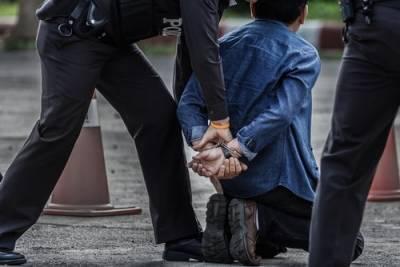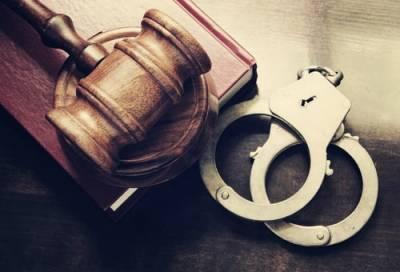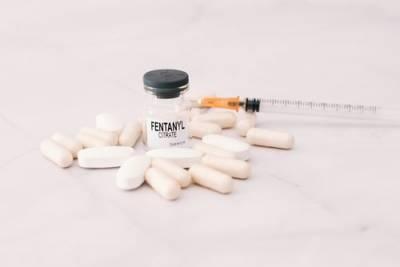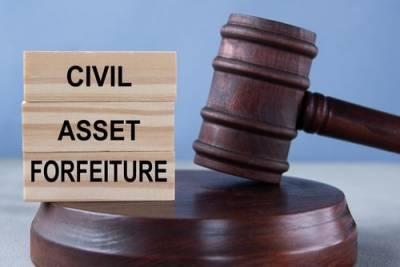Recent Blog Posts
Connecticut Updates Bail Thresholds for People Facing Criminal Charges
 For people who are arrested and charged with a crime, the first priority is often to determine how they can be released from custody. Securing a speedy release can be crucial, since it can help a person avoid consequences such as the loss of a job or issues that affect their custody of their children. In many cases, a person will be required to pay a certain amount of bail. However, some people may not have the resources to make a large cash payment, and they may be required to remain in custody until their case is resolved. To address this issue, Connecticut judges will be implementing a new rule that will allow lower amounts of bail to be paid in certain situations.
For people who are arrested and charged with a crime, the first priority is often to determine how they can be released from custody. Securing a speedy release can be crucial, since it can help a person avoid consequences such as the loss of a job or issues that affect their custody of their children. In many cases, a person will be required to pay a certain amount of bail. However, some people may not have the resources to make a large cash payment, and they may be required to remain in custody until their case is resolved. To address this issue, Connecticut judges will be implementing a new rule that will allow lower amounts of bail to be paid in certain situations.
Understanding Bail in Connecticut
When a person is arrested in Connecticut, bail will be set by the police, staff members of Pretrial Services, or a judge. After paying this amount, the person may be released from custody, and they will be required to appear in court at all scheduled hearings and during their trial. After the completion of the case, the amount paid will be returned to the person, as long as they met all requirements put in place when bail was set.
Could the Supreme Court Take Away the Rights of Criminal Defendants?
 People in the United States have a number of rights that protect them when they are accused of crimes and tried for criminal offenses. While many of these rights have been established through laws passed by Congress, others have been put in place through judicial rulings that have interpreted the Constitution. Unfortunately, this means that some of these rights may be at risk of being removed based on rulings by the Supreme Court.
People in the United States have a number of rights that protect them when they are accused of crimes and tried for criminal offenses. While many of these rights have been established through laws passed by Congress, others have been put in place through judicial rulings that have interpreted the Constitution. Unfortunately, this means that some of these rights may be at risk of being removed based on rulings by the Supreme Court.
Rights That Could Potentially Be Overturned by the Supreme Court
Currently, six of the justices on the Supreme Court have been appointed by Republican presidents, and three justices have been appointed by Democrats. The conservative majority on the court has already led to some decisions that have affected people's rights, such as the ruling in the case of Dobbs v. Jackson Women's Health Organization, which took away the right to abortion. Some other rights that may be at risk include:
How Often Do 911 Calls Lead to Unnecessary Arrests?
 In recent years, many people have raised concerns about the role of police in our society, including whether they are best suited to deal with emergency situations. When people call 911 for assistance, police will often be dispatched to the scene of an emergency along with other first responders, such as firefighters or emergency medical technicians. Unfortunately, the presence of police officers in certain situations can make things worse, especially in cases involving mental health issues. Since police officers are focused on identifying criminal activity, they may treat the people involved in an emergency as suspects, subdue people who they believe are behaving dangerously, and perform arrests rather than de-escalating a situation and offering aid.
In recent years, many people have raised concerns about the role of police in our society, including whether they are best suited to deal with emergency situations. When people call 911 for assistance, police will often be dispatched to the scene of an emergency along with other first responders, such as firefighters or emergency medical technicians. Unfortunately, the presence of police officers in certain situations can make things worse, especially in cases involving mental health issues. Since police officers are focused on identifying criminal activity, they may treat the people involved in an emergency as suspects, subdue people who they believe are behaving dangerously, and perform arrests rather than de-escalating a situation and offering aid.
Unfortunately, people who are involved in situations where someone called 911 may be subject to unnecessary arrests, and they may face criminal charges. This can be a major concern in cases where someone calls 911 to report a domestic dispute, and police who are called to the scene are likely to arrest at least one person involved on charges related to domestic violence. Those who have been arrested and charged with crimes in emergency situations will need to understand how they can defend against these charges and resolve a criminal case successfully.
How Can Victims’ Rights Be Protected in the Criminal Justice System?
 When a person is accused of a crime, the criminal justice system will often focus on investigating the allegations, pursuing criminal charges, and implementing punishments following a conviction. During a case, the prosecution will attempt to demonstrate the person's guilt, while the defendant will work to prove their innocence or provide information about mitigating circumstances. In the midst of the legal proceedings, the victim or victims of the alleged offense are often overlooked. However, they can often provide important information about a case, and their rights should be respected in matters related to prosecution, sentencing, and post-conviction appeals or requests for relief.
When a person is accused of a crime, the criminal justice system will often focus on investigating the allegations, pursuing criminal charges, and implementing punishments following a conviction. During a case, the prosecution will attempt to demonstrate the person's guilt, while the defendant will work to prove their innocence or provide information about mitigating circumstances. In the midst of the legal proceedings, the victim or victims of the alleged offense are often overlooked. However, they can often provide important information about a case, and their rights should be respected in matters related to prosecution, sentencing, and post-conviction appeals or requests for relief.
Increased Focus on Crime Victims' Needs and Desires
Due to a number of recent high-profile cases in which victims have spoken out against people who have allegedly committed acts of violence, sexual assault, or abuse, there has been an increased focus on how victims are affected by these issues and how they are treated in criminal cases. In a recent book, Judith Herman, a pioneering psychological researcher who has brought attention to the trauma experienced by victims of crimes such as sexual abuse, looked at the issues that many victims face as they deal with the aftermath of sexual assault, domestic violence, child abuse, and other similar traumatic situations.
Can Police Use Google Search History to Identify Suspects?
 Search engines and other online tools have become essential in many people's lives. Being able to quickly and easily look up information or get directions allows people to complete multiple types of daily tasks while at home, at work, or anywhere else. However, this easy access to information comes with a cost. The searches people perform and the other ways they use websites and apps leave behind a digital trail that could be used to track their movements and activities. In some cases, this information may be accessed by law enforcement and used as evidence in a criminal case. Privacy and criminal justice advocates are challenging these practices, and a case that is currently being heard by the Colorado Supreme Court may play a significant role in how Google search information may be accessed and used by law enforcement.
Search engines and other online tools have become essential in many people's lives. Being able to quickly and easily look up information or get directions allows people to complete multiple types of daily tasks while at home, at work, or anywhere else. However, this easy access to information comes with a cost. The searches people perform and the other ways they use websites and apps leave behind a digital trail that could be used to track their movements and activities. In some cases, this information may be accessed by law enforcement and used as evidence in a criminal case. Privacy and criminal justice advocates are challenging these practices, and a case that is currently being heard by the Colorado Supreme Court may play a significant role in how Google search information may be accessed and used by law enforcement.
Colorado Supreme Court Addresses Reverse Keyword Search Warrants
In August of 2020, five people were killed in a house fire in the Denver area that was allegedly started by three teenagers. As police officers investigated the incident, they were unable to identify the suspects until they issued a search warrant to Google. This warrant required Google to turn over information about anyone who searched for the street address of the home in question within 15 days before the fire. The search turned up several accounts and eventually led to the identification of the suspects, who were charged with first-degree murder, arson, and other offenses.
The Fentanyl Epidemic May Lead to Changes in U.S. Drug Policies
 The United States is facing an unprecedented crisis due to the increased availability of fentanyl, a powerful synthetic opioid. Fentanyl has been linked to tens of thousands of overdose deaths across the country in recent years, making it one of the leading causes of drug-related fatalities. The rise in fentanyl overdoses has raised alarm bells among public health officials, who are calling for changes to U.S. drug policies that focus on harm reduction rather than pursuing drug charges for those who are accused of possessing or using this deadly substance.
The United States is facing an unprecedented crisis due to the increased availability of fentanyl, a powerful synthetic opioid. Fentanyl has been linked to tens of thousands of overdose deaths across the country in recent years, making it one of the leading causes of drug-related fatalities. The rise in fentanyl overdoses has raised alarm bells among public health officials, who are calling for changes to U.S. drug policies that focus on harm reduction rather than pursuing drug charges for those who are accused of possessing or using this deadly substance.
What Is Fentanyl, and Why Is it So Dangerous?
Fentanyl is a synthetic drug that is classified as an opioid. While other types of opioids, including heroin and morphine, are made from poppy plants, fentanyl is synthesized using chemicals. While fentanyl was originally developed in the 1960s as a pain medication, it has seen increased use in recent years as an illegal drug. In many cases, those who have become addicted to prescription painkillers have turned to fentanyl.
How Does Facial Recognition Technology Affect Criminal Cases?
 In our modern world, people are constantly monitored throughout their daily lives, including by cameras in public locations, as well as their own smartphones and other electronic devices. Many people do not realize the extent of the information about them that is being collected, analyzed, and resold, including how photos or other data may be accessed by law enforcement and used to investigate and prosecute crimes. Facial recognition technology has come under fire in recent years, and privacy and criminal justice advocates have raised concerns about how police officers and other law enforcement officials may use these systems to identify suspects, make arrests, and prosecute people for criminal offenses.
In our modern world, people are constantly monitored throughout their daily lives, including by cameras in public locations, as well as their own smartphones and other electronic devices. Many people do not realize the extent of the information about them that is being collected, analyzed, and resold, including how photos or other data may be accessed by law enforcement and used to investigate and prosecute crimes. Facial recognition technology has come under fire in recent years, and privacy and criminal justice advocates have raised concerns about how police officers and other law enforcement officials may use these systems to identify suspects, make arrests, and prosecute people for criminal offenses.
Concerns About Facial Recognition and AI
The facial recognition system that is most commonly used by law enforcement is provided by Clearview AI. This company has built a database of billions of photos that were gathered from the internet and other sources, including photos people have posted to social media. Its systems use artificial intelligence (AI) algorithms to compare images of criminal suspects with photos in the database. When a person is identified in this manner, police officers may investigate them further, arrest them, and pursue criminal charges.
Policy Changes May Affect Commutations for Prisoners in Connecticut
 In the United States, the criminal justice system often imposes harsh penalties on those who are convicted of crimes. Violent crimes and other serious offenses may result in prison sentences that last for multiple decades. Criminal justice reform advocates have argued that these types of sentences are overly harsh, especially for offenders who committed crimes at a young age. Prior to the age of 25, people's brains are still developing, and they may not fully understand the consequences of their actions. Unfortunately, mistakes made during a person's youth can result in penalties that affect them for the rest of their lifetime.
In the United States, the criminal justice system often imposes harsh penalties on those who are convicted of crimes. Violent crimes and other serious offenses may result in prison sentences that last for multiple decades. Criminal justice reform advocates have argued that these types of sentences are overly harsh, especially for offenders who committed crimes at a young age. Prior to the age of 25, people's brains are still developing, and they may not fully understand the consequences of their actions. Unfortunately, mistakes made during a person's youth can result in penalties that affect them for the rest of their lifetime.
As advocates look to make changes to how criminal offenses are prosecuted and how people are sentenced, they are also seeking to help people who have served long sentences and taken steps toward rehabilitation. Some public officials have taken action to provide relief for these prisoners and allow them to be released. In Connecticut, commutations have become available for more prisoners. However, these policies have been questioned by the state's lawmakers, and adjustments may be made to how these types of cases will be handled in the future.
Will Congress Take Action to Limit Civil Asset Forfeiture?
 Civil asset forfeiture is a controversial practice in which police officers or other law enforcement officials seize money or other property from individuals suspected of criminal activity. In many cases, these forfeitures are performed without a court order or a criminal conviction. This form of forfeiture has been widely criticized for its lack of oversight and accountability. In recent years, there have been calls for reform to the ways civil asset forfeitures are conducted by law enforcement officials across the country. Now, Congress may be taking action to limit these practices and ensure greater transparency and fairness in how they are used.
Civil asset forfeiture is a controversial practice in which police officers or other law enforcement officials seize money or other property from individuals suspected of criminal activity. In many cases, these forfeitures are performed without a court order or a criminal conviction. This form of forfeiture has been widely criticized for its lack of oversight and accountability. In recent years, there have been calls for reform to the ways civil asset forfeitures are conducted by law enforcement officials across the country. Now, Congress may be taking action to limit these practices and ensure greater transparency and fairness in how they are used.
Potential Reforms to Civil Forfeiture Laws
People who are convicted of crimes will often be required to turn over any money or property they earned through illegal activity. These criminal forfeitures require prosecutors to meet a certain burden of proof. Civil asset forfeitures, on the other hand, may be performed even if a person is never arrested or charged with a crime. Law enforcement officials may seize any money or property that they believe to be connected with criminal activity. To recover their property, the owner will have the burden of proof to show that they are innocent.
Flawed Forensic Science: Bite Mark Analysis Can Lead to Wrongful Convictions
 There are a variety of techniques that criminal investigators and prosecutors may use to identify suspects and attempt to prove their guilt. While these techniques are referred to as "forensic science," they are often very unscientific. Unfortunately, far too many criminal convictions are based on "junk science" that does not hold up to scrutiny and does not accurately prove that a person committed a crime. Bite mark analysis is one of the most thoroughly debunked forms of flawed forensic science, but some people who were wrongfully convicted based on this type of evidence are still struggling to protect their rights and receive fair treatment in the criminal justice system.
There are a variety of techniques that criminal investigators and prosecutors may use to identify suspects and attempt to prove their guilt. While these techniques are referred to as "forensic science," they are often very unscientific. Unfortunately, far too many criminal convictions are based on "junk science" that does not hold up to scrutiny and does not accurately prove that a person committed a crime. Bite mark analysis is one of the most thoroughly debunked forms of flawed forensic science, but some people who were wrongfully convicted based on this type of evidence are still struggling to protect their rights and receive fair treatment in the criminal justice system.
Problems With Bite Mark Evidence
The idea behind bite mark evidence may seem sound: if people have unique dental patterns, then it should be possible to identify a perpetrator based on the impressions left behind by their teeth on a victim's body. However, analysis of bite marks is unreliable due to multiple issues:






